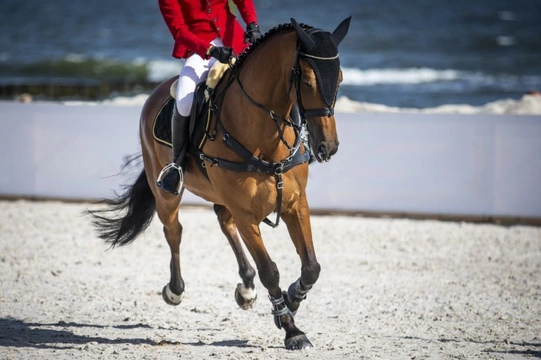
The 2020 Tokyo Olympics
The Olympics are back and with horses the only animals involved in the Olympic movement, there is considerable focus on managing their welfare in the challenging conditions which will prevail in Japan during this running of the Games of the XXXII Olympiad.
Horses are prolific sweaters but there are unique challenges which will be managed by a team led by experienced vets who can draw on the techniques used in the 1996 Olympic Games in Atlanta where both heat and humidity were a real problem for competing equines.
Equestrian sports both Olympic and Paralympic will be held at the 45-acre Baji Koen Equestrian Park and Sea Forest venues, the latter being the site of the cross-country course for the three-day event. Baji Koen was the venue for the Olympic equestrian events the last time the games came to Tokyo which was in 1964 and this site has been completely revamped by the Japan Racing Association. Large tents will be installed to act as cooling bays with giant fans and water misters to lower core temperature, particularly for the event horses. The stables where the horses will be housed for all the equestrian disciplines will be air-conditioned and vehicular travel to and from the stables to event stadiums will be carried out in air-conditioned vehicles. Following the example from Beijing in 2008, the Tokyo Games will divide their start times for the competitions between the early morning and late evening similar to the pattern of events in Hong Kong in 2008. Training sessions will be held early in the morning and during the evening to avoid the hottest and most humid time of day which is late morning through to the early afternoon.
The Tokyo organising committee has already run a test event in August 2019 called ‘Ready Steady Toyko’ during which the FEI (Fédération Equestre Internationale) undertook a major research study led by Dr David Marlin designed to develop the best practices for managing horses competing in hot and humid conditions. Dr Marlin has been working with the FEI for the last three years gathering data specifically on the conditions in Tokyo and looking at historical climate records.
At the test event, data gathered showed that the horses coped well with the conditions; the event was deliberately staged at the same time of year as the Games will be – August - to accurately replicate the environment. On cross-country day, the steep initial climb on the course and sharp turns requiring ultimate athletic ability and prowess took horses to almost their maximum capacity. Data was gathered from heart rates during the cross country and blood, lactate, heart rate and rectal temperature were taken after the horses had finished. The latest technology was deployed to collect data including a new heart rate monitor that also displays the ECG plus infra-red thermal imaging.
However, there is more to it than just the environmental issues in Tokyo; horses have to endure long journeys to reach Japan and there is also the impact of time zone disruption so the horses’ entire experience was considered in the round. The data collected by the FEI will be used to provide the Tokyo 2020 Organising Committee (TOCOG) and the National Olympic Committees with detailed information on equine performance and welfare. This is not just about providing suitable and supportive conditions whilst the horses are competing in Japan but also to advise owners, riders and trainers of the best way to prepare their horses for the challenges which lie ahead.
How was the data collected?
Researchers used monitors under the horses’ tails with sensors to record activity within the stable environment and whilst they were travelling to competition venues. SaddleClip sensors were used to record distance, speed and gait when the horses were being ridden and heart rate monitors were employed before and during the actual competitive events. Researchers will build on the framework that was last used in Atlanta in 1996 and Beijing in 2008 when the equestrian events were run in Hong Kong.
How will the horses reach Japan?
The international bloodstock transporter, Pedens, will coordinate the shipping of the team horses to Japan using a number of dedicated airfreight hubs in Liege in Belgium, New York and/or /Chicago and Sydney or Melbourne in Australasia. Pedens are expecting to move a total of 328 horses across 50 nations with 90% of the total cohort of horses originating from Europe. They will manage all the coordination of the horses being loaded onto the correct flights and their movement to the stables in Japan upon arrival. They will also deal with all the health requirements including vaccinations, quarantine in the UK prior to departure and any disease restrictions.
The organising committee of the 2020 Tokyo Olympics is recruiting volunteers to help with the organisation and running of the equestrian sporting events. Some decent equestrian knowledge, a good work ethic and a fabulous team spirit are the only requirements for this role. Those games makers who were involved in the equestrian events at the London 2012 Olympics had an unforgettable experience and now, you can do it all again but this time with a trip to Japan in addition to the thrill of world class equine competition.



